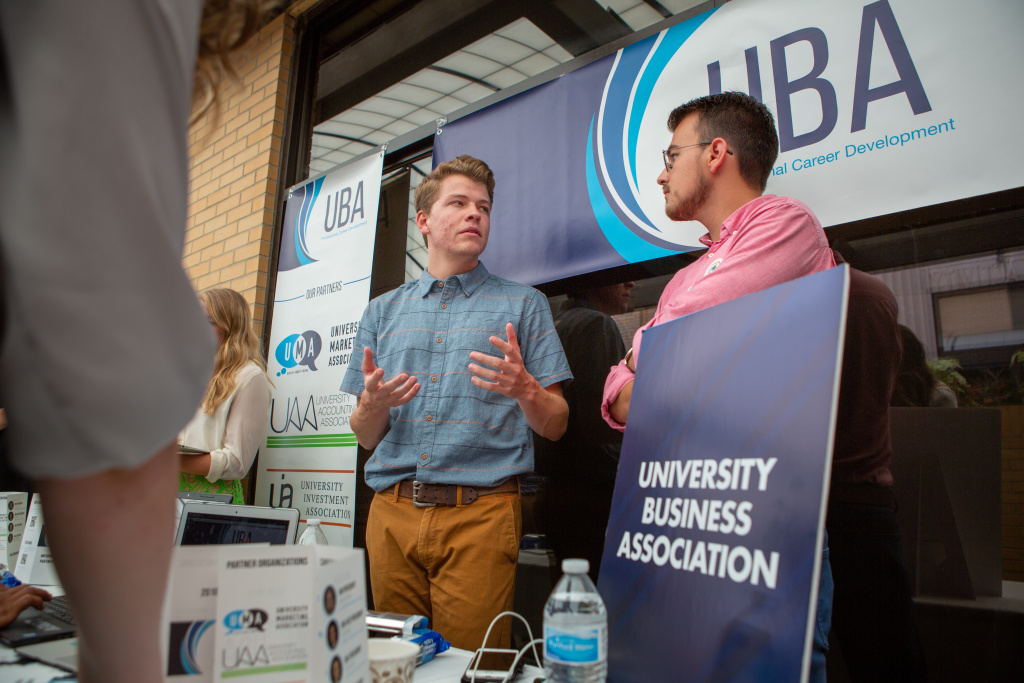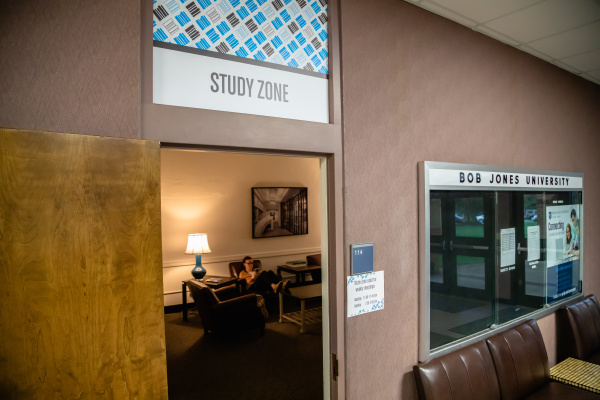“(Student) organizations provide an incredible opportunity for students to develop God-honoring relationships with one another,” said Dr. Matthew Weathers, director of the Center for Leadership Development (CLD). “If you talk to alumni, often their best friends are the ones they had in their campus organizations.”
Some student organizations emphasize leadership, including literary societies, the Community Service Council (CSC), Inter-Society Council (ISC) and Student Leadership Council (SLC). Referring specifically to society leaders, Weathers said, “Those student leaders are responsible to lead their peers as they themselves are developing as leaders, primarily in communication, motivation, planning and time management.” Additionally, student organizations like the ISC Executive Council “(help) society officers to learn and understand what their roles are,” he added.
Students can also join academic and professional organizations. Like the leadership organizations, “each organization is led by a group of students, but … every (academic and professional) association has a faculty sponsor,” Weathers explained.
For a list of available student organizations, visit bju.edu/life-faith/get-involved.
Why Join Student Organizations
In addition to their ultimate purpose of building God-honoring relationships, student organizations have other benefits.
Prepare for a Career
Students can get a taste of professional work in what Weathers calls a “low-stakes environment.” He said, “If (society officers or organization leaders) make a mistake, it’s really OK. … They are not in a career, so if they make a mistake, they’re not getting fired from their job. (Instead), they have a conversation with one of our CLD GAs or myself or another student leader about how to work through a situation.”
He added, “These leadership opportunities (prepare) them to excel in the workforce once they graduate. … (Students learn) even simple things like replying to communication in a timely manner, reserving locations around campus for an event, and coordinating society merchandise that needs to be purchased and paid for.
“A lot of leadership is detail work, and people learn that leadership isn’t all about being on the stage. There’s a whole lot of backstage work to leadership. And that’s a fabulous life lesson.
“I was talking to a recent grad … a few months ago — she was a former society president — and I asked her how she was doing. … She’s working at a bank, (and) I said, ‘How did your society leadership experience prepare you for your job?’ She said, ‘I have the job I have now because of my leadership experience at (BJU). I’m leading a team of people twice my age, I’m running meetings with them, and I learned so many of those soft leadership skills because of campus leadership.’ … You could talk to any student leader who has graduated and ask them that same question. You’d hear similar stories.”
Grow Spiritually
Student organizations are also designed to facilitate spiritual growth. The CLD’s tagline is “Develop yourself. Lead your peers. Serve your community.” Weathers said, “It starts internally with developing yourself. … God often needs to do a work in you before he does a work through you, (so we encourage) leaders to really take the time to (read) God’s Word.
“Then it’s like a ripple effect out, to leading your peers, and then through that, you’re able to serve your community. Your community could be (BJU), it could be the Greenville community, or it could be your church community.”
Weathers said that leadership training before the fall semester especially encourages students to serve one another. “That’s the biblical model of leadership,” he explained.
How to Join or Lead Student Organizations
All students are required to join a literary society by participating in rush and induction. Every semester, qualified members can be nominated and elected to an office by fellow members. All positions require students to maintain their grades. “(If your GPA is too low), we love you, but we’re not going to let you be a society officer because you don’t need to focus on society — you need to focus on your classes,” Weathers explained. Additionally, major offices — president, vice president and chaplain — are reserved for upperclassmen.
In addition to joining a society, “students can join as many organizations as they want,” Weathers said. “They don’t have to be in a certain major to join those organizations, but they can learn about different things in that field just by joining the organization. … They learn from the content that’s being delivered, from the connections that are available, and … from professionals in any given field.”
Almost all student organizations — including academic and professional ones — allow students to join, receive emails and remain relatively uninvolved. Students interested in becoming organization leaders can consult the faculty sponsor or the organization’s constitution.
On the other hand, leadership organizations — specifically the SLC — require active participation from its members, so student leaders often determine nominees for those positions. The student body then elects most of the SLC’s members. To sum up the process, Weathers said, “The majority of SLC positions are peer-nominated and peer-elected.”
Now Go Join an Organization
Weathers encourages students to learn about organizations but to choose wisely which ones to become involved in. “With organizations and societies, students get out what they put (in) 100% of the time,” he said. “… If you can only invest in a limited amount of things, that’s OK. So (to) the freshman who is super busy and not knowing what they should do, I would say explore. But don’t go so deep your freshman year. Think about it like surfing rather than scuba diving. You surf around, you look. Scuba dive your sophomore and junior year and get really deep into some of these organizations, and that generally provides for a better experience.
“Get involved, enjoy your time, maximize your college years because there are not many of them.”
Students can “surf and dive” at the Campus Opportunities Expo on the Palmetto Green on Tuesday, Aug. 25, from 11:45 a.m.–2 p.m. Informational tables will be set out for all the organizations. A list of student organization contacts is available on the BJU intranet.
See Also: Choosing a Society Made Simple | Make the Most of Your Society Experience








